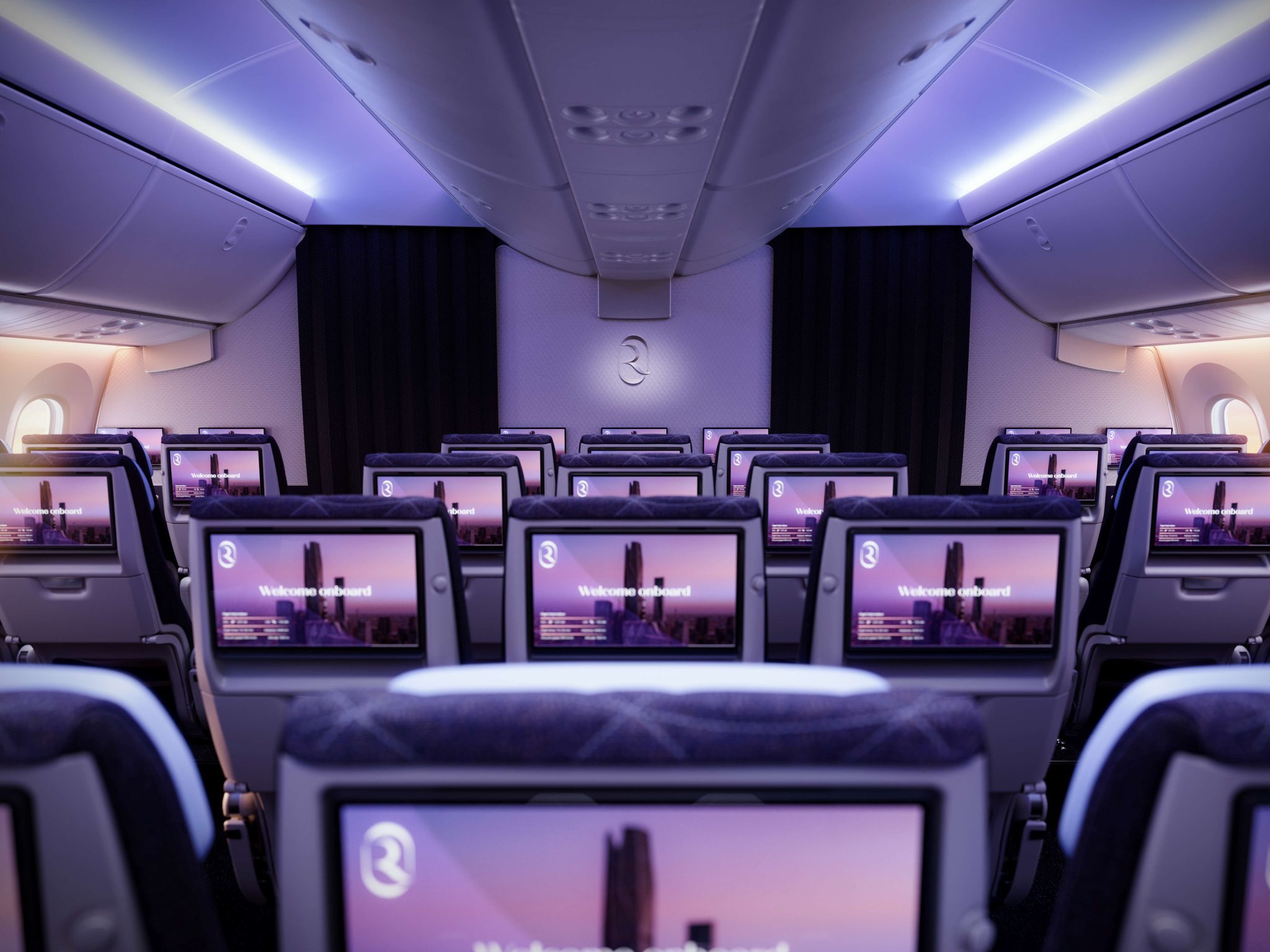
Riyadh Air, the ambitious new Saudi Arabian carrier, has officially revealed the interior cabin designs for its upcoming Boeing 787-9 aircraft, setting a new benchmark in luxury and innovation for Middle Eastern aviation. The airline’s 290-seat widebody jets will feature a meticulously crafted four-class layout, designed to deliver exceptional comfort, privacy, and cutting-edge technology to passengers across all travel classes.

At the forefront is the exclusive “Business Elite” cabin, which boasts 10 private suites arranged in a spacious 1-2-1 configuration. These suites are equipped with Safran Unity seats that fully recline into flat beds and include sliding privacy doors and adjustable dividers, allowing travelers to customize their personal space.
Notably, the center two seats can be combined to form a double bed, catering especially to couples or those seeking extra room during long-haul flights.

In addition to the Business Elite suites, the business class section offers 24 seats also arranged in a 1-2-1 layout, featuring the same flat-bed seating to ensure maximum comfort. The premium economy cabin is thoughtfully designed with 39 seats in a 2-3-2 arrangement, incorporating privacy-enhancing head wings, ample storage options, and multiple USB-C charging ports to meet the needs of modern travelers.
Economy class comprises 223 seats in a 3-3-3 layout, each with a generous 31-inch seat pitch, adjustable six-way headrests, and USB-C ports, aiming to provide a comfortable journey even for budget-conscious flyers.

The cabin interiors reflect a sophisticated blend of modern aesthetics and cultural heritage, inspired by Riyadh’s rich history and landscape. The color scheme features deep purples, mocha gold tones, and veined stone textures, evoking the natural beauty and elegance of the Saudi capital. A distinctive “canopy twist” design element, inspired by traditional Arabic tents, adds a unique architectural flair to the cabin environment, creating a warm and inviting atmosphere.
Riyadh Air has partnered with Panasonic Avionics to integrate the latest Modular Interactive in-flight entertainment system, offering passengers a highly personalized experience with real-time content updates. Screen sizes vary from 13.3 inches in economy to an impressive 32 inches in the Business Elite suites, all utilizing 4K OLED displays to ensure crystal-clear visuals.

Connectivity is a key focus for Riyadh Air, with free high-speed Wi-Fi provided by Viasat available to all passengers enrolled in the airline’s loyalty program. This service enables uninterrupted streaming, browsing, and live television access throughout the flight, catering to the digital needs of today’s travelers. Riyadh Air recently secured its air operator’s certificate and is preparing to launch operations later this year.
The airline has ambitious expansion plans, intending to grow its fleet to over 130 aircraft, including a mix of Boeing 787-9s and Airbus A321neos, to serve both long-haul and regional routes.

CEO Tony Douglas highlighted that every detail of the cabin—from the ergonomic seat fabrics designed to reduce fatigue, to the state-of-the-art entertainment and connectivity systems—has been carefully curated to provide a “relaxing luxury” experience that sets Riyadh Air apart in a competitive market.
The airline aims to position itself as a digital-native carrier that seamlessly integrates advanced technology with authentic Saudi culture, offering passengers a premium travel experience that is both innovative and deeply rooted in the region’s heritage. With these new cabin designs, Riyadh Air is poised to become a leading player in global aviation, promising travelers an unparalleled blend of comfort, style, and technological sophistication.



.jpeg)



.jpeg)

























.jpg)



















